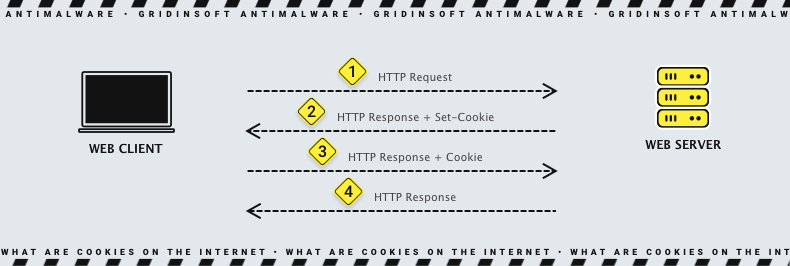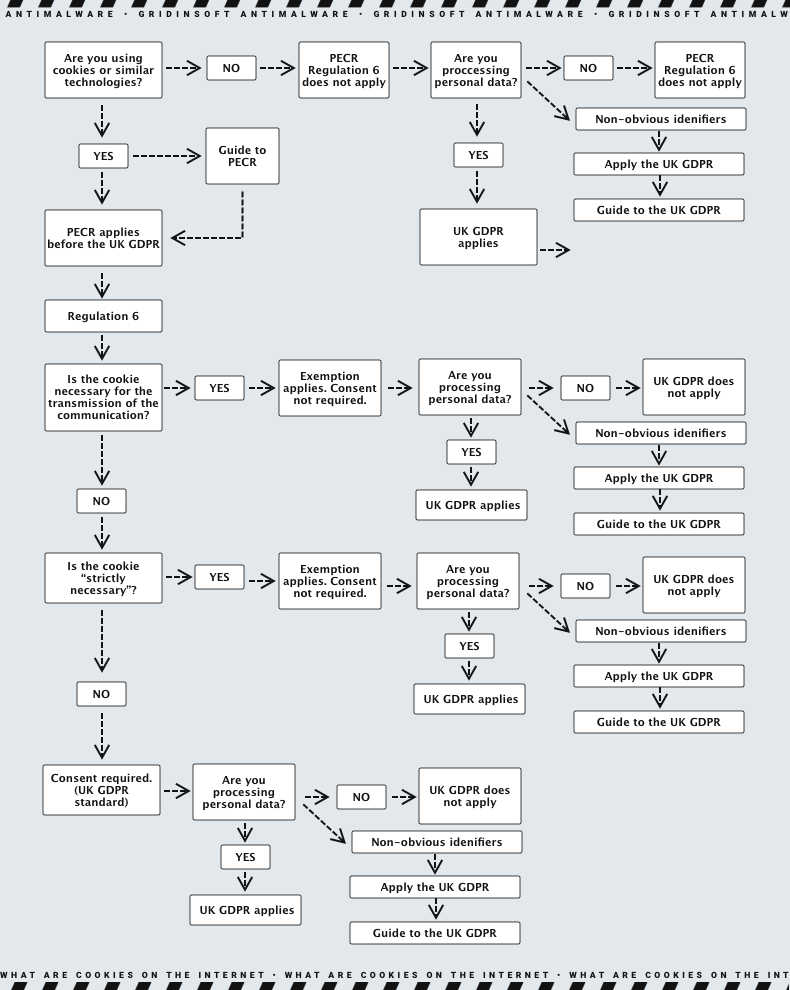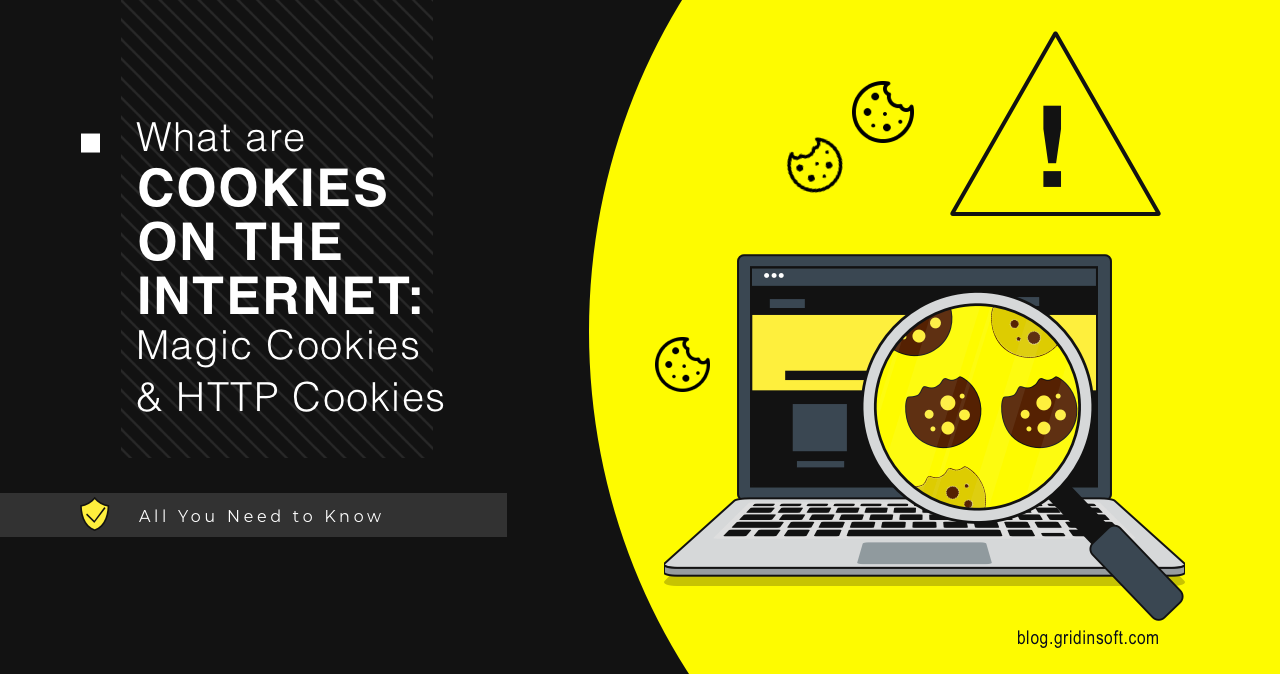Cookies are necessary to the modern Internet but can damage your privacy. As an essential component of online browsing, HTTP cookies facilitate more personalized, convenient website visits. Browser cookies are used to remember your website logins, shopping carts, and other information. However, they can also be a source of private information for criminals to surveil. Below you will see the definition of a cookie, what it is used for, and other information.
What Are Cookies?
Web browsers store the information a web server provides in the form of small files called cookies. These files store information about the browsing session, such as a user’s shopping cart contents. When users browse a website using its default settings, their cookies are attached to subsequent requests to the web server. Websites use cookies to understand a user’s habits and preferences. This allows websites to provide personalized experiences, like displaying recommendations based on a user’s browsing history or previously placed items in their shopping cart. In addition, some cookies are used for security purposes, such as authentication cookies. Internet cookies are also referred to as HTTP cookies. They’re used on many websites and are usually accessed through the HTTP/HTTPS protocol.
What Are Cookies Used For?
Websites use cookies to make browsing more convenient by automatically remembering your information after you leave or close the page. Consequently, you wouldn’t have to log in again or reinstall your shopping cart if you closed the tab accidentally. Cookies provide a significant part of the Internet experience. Therefore it’s necessary to understand why they’re valuable before deciding whether or not to keep them.
- Session management. For example, cookies allow websites to recognize users and remember their personal preferences, such as sports news versus politics.
- Personalization. When sites use cookies to personalize their advertisements, they usually use customized advertising. This means that cookies help websites create ads you might like based on your data.
- Tracking. Online stores use cookies to remember information about the items someone has previously viewed. This allows them to continue suggesting other things the user may like and keep their carts filled with items they still need to purchase.
What are the different Types of Cookies?
Some of the most significant types of cookies include:
1. Session cookies
Websites employ a session cookie to track a user’s session. Session cookies are erased after the user’s session is over — once they log out of their account on a website or leave the site. Session cookies have no expiration date; this indicates to the browser that they should be deleted once the session is over.

2. Magic cookies
This old term in computing refers to packets of information transmitted and received without alteration. Typically, this would be employed to access a computer database system internal to a business, such as a network. This idea is older than the modern "cookie" we utilize today.
3. HTTP cookies
HTTP cookies specifically designed for web browsers to record, personalize, and save information about each user’s session. A session is the amount of time you spend on a website. Cookies are employed to recognize you when you visit a new website. The server that hosts the website’s data transmits a brief, identifying message to your web browser. Browser cookies are placed by their name and value pairs. These instructions tell cookies where to go and what information to remember.
4. Authentication cookies
Authentication cookies are used to maintain user sessions, created when a user logs into an account via their browser. They ensure that confidential information is delivered to the intended users by associating user account information with a cookie identifier that is unique to each user.
5. Tracking cookies
Cookies that are generated by tracking services are called tracking cookies. This is because they observe user behavior, and browsers transmit this information to the associated tracking service the next time they visit a website that utilizes that service.
6. Zombie cookies
Like the "zombies" in popular fiction, zombie cookies will regrow after being deleted. Zombie cookies have multiple copies of themselves that are not stored in the specific location for cookies. They utilize these backups to re-appear within a browser after they are deleted. Dishonest advertising networks and cyber criminals sometimes employ zombie cookies.
How do Browser cookies affect user privacy?
Cookies can be employed to record browsing activity, including for advertising purposes. However, many users do not want their online behavior to be monitored. Additionally, users need more transparency or control over the data tracking services collected. Even when cookie-based tracking is not associated with a specific user’s device or name, with some types of monitoring, it is still possible to associate a record of a user’s browsing activity with their real identity. This data could be utilized in many ways, including unwanted advertising, stalking, or harassment of users. This is only the case for some forms of cookie usage.
Some privacy laws, like the EU’s ePrivacy Directive, address and govern the use of cookies. Under this Directive, users must consent to the use of cookies by being informed of the purpose and method of use. They must also agree to this usage before the website can utilize cookies. The only exception is cookies that are "necessary" for the website to function. In addition, the EU’s General Data Protection Regulation (GDPR) considers cookie identifiers personal information, so its regulations apply to the usage of cookies in the EU. Therefore, any personal data collected through cookies is also subject to the GDPR’s jurisdiction. Because of these regulations, many websites now show banners that allow users to control and review the cookies those websites utilize.

Why Cookies on the Internet Can Be Dangerous
Since the information stored in cookies is constant, cookies are not harmful. They cannot spread viruses or other malware to computers. However, some cyberattacks can take over cookies and allow access to your browsing history. The threat is their capacity to identify the browsing histories of individuals. To explain, let’s discuss what cookies to be wary of. Some cookies have a more significant threat than others, depending on their origin.
- First-party cookies. The ads are generated by the website you are visiting. These are typically more secure if you visit authority sites or ones that have not been compromised.
- Third-party cookies. They are produced by websites that are different from the pages that users are currently browsing. These are typically associated with advertisements on the page. For example, visiting a site with ten ads may produce ten cookies even if users never interact with them. Third-party cookies allow advertisers or analytics companies to observe an individual’s browsing history across multiple websites containing their advertisements. As a result, the advertiser could deduce that a user first searched for running apparel at a specific outdoor store before visiting a particular sporting goods website and then a typical online retailer of sportswear.


